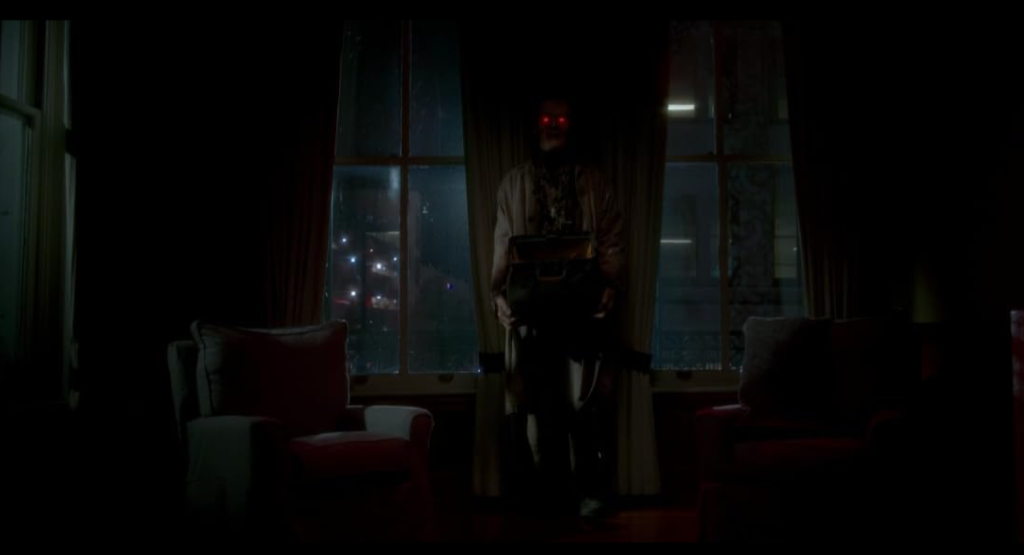For decades, the name Stephen King has been synonymous with spine-chilling horror and narratives that delve into the darkest recesses of the human psyche. From the iconic “IT” to the eerie “Pet Sematary,” King’s novels have been the source material for some of the most unsettling cinematic experiences in history. Among the adaptations, “Gerald’s Game” stands out for its disturbing portrayal of psychological terror, a Netflix horror film that has left audiences trembling and, in some cases, even passing out.
Exploring The World of Netflix Horror: The Rise of “Gerald’s Game”

In recent years, Netflix has solidified its position as a powerhouse in the realm of horror, acquiring rights to remake classic films based on King’s work while also producing original content. One such Netflix exclusive, “Gerald’s Game,” directed by Mike Flanagan, has emerged as a standout in the genre. Flanagan, known for his mastery of horror storytelling through projects like “The Haunting of Hill House” and “Doctor Sleep,” brings King’s chilling narrative to life with haunting precision.
Unraveling the Plot: A Descent into Madness

Released in 2017, “Gerald’s Game” revolves around a gripping premise: a woman accidentally kills her husband during a twisted game of intimacy. Handcuffed to a bed in a remote cabin, she finds herself trapped, both physically and mentally, as she grapples with the aftermath of the tragedy. As the isolation and desperation escalate, the boundaries between reality and hallucination blur, plunging the protagonist, played by actress Carla Gugino, into a harrowing journey of survival.
Read More: 16 Fear-Inducing Photos That Will Have You Screaming Until Your Voice Is Gone
The Impact on Audiences: Reactions and Responses

Despite its release a few years ago, “Gerald’s Game” continues to captivate audiences, sparking discussions and eliciting strong reactions. In online forums like the Netflix Bangers Facebook group and Twitter, viewers have shared their thoughts on the film, with many praising its intensity and psychological depth. However, amidst the acclaim, there are whispers of a scene so disturbing that it has left viewers physically ill and apparently, even unconscious!
The Netflix Horror Scene That Shocks: Unveiling the Climactic Moment

At the heart of the controversy lies a pivotal scene in “Gerald’s Game” that pushes the boundaries of horror and discomfort. Without revealing spoilers, this moment serves as the climax of the film, delivering a gut-wrenching revelation that leaves audiences reeling. Reports of viewers feeling faint, nauseated, or needing to pause the film to compose themselves have only added to the intrigue surrounding this harrowing sequence.
The Critical Acclaim: Surpassing Expectations

Despite its divisive nature, “Gerald’s Game“ has garnered praise from critics and audiences alike. With a remarkable 91 percent rating on Rotten Tomatoes, the film has been lauded for its bold storytelling and Gugino’s powerhouse performance. Some critics have even gone as far as to declare that “Gerald’s Game” surpasses its source material, a rare feat for adaptations of King’s work. As the film continues to leave a lasting impression on viewers, it stands as a testament to the enduring power of psychological horror in cinema.
In the realm of horror, “Gerald’s Game” stands as a testament to the unyielding impact of storytelling that dares to delve into the darkest corners of the human experience. With its gripping narrative, unforgettable performances, and a scene that has left audiences gasping for breath, this Netflix gem solidifies its place as a modern classic in the genre. As viewers brace themselves for the chilling journey that awaits, one thing remains certain: “Gerald’s Game” is not for the faint of heart.
Read More: Actress Quinta Brunson Calls Out Friends for Having ‘No Black Characters’
This content has, in part, been generated with the aid of an artificial intelligence language model. While we strive for accuracy and quality, please note that the information provided may not be entirely error-free or up-to-date. We recommend independently verifying the content and consulting with professionals for specific advice or information. We do not assume any responsibility or liability for the use or interpretation of this content.

